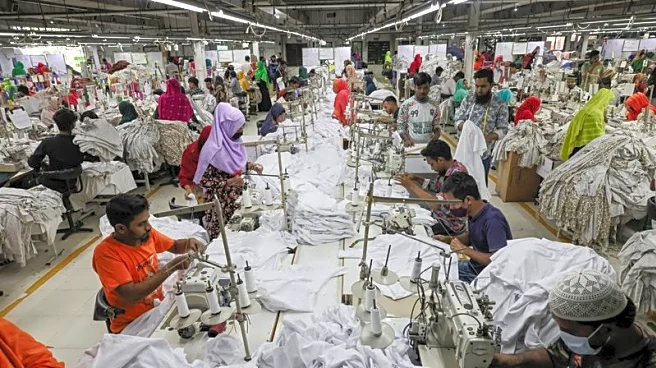What's Happening?
The U.S. cosmetics industry is facing significant challenges due to rising tariffs on imports, particularly from China. These tariffs are increasing costs, causing supply chain disruptions, and forcing brands to make strategic decisions. Many companies are absorbing some of the increased costs, while others are passing them on to consumers. The industry is also experiencing delays in supply chains and exploring legal loopholes like the 'first sale' rule to mitigate financial impacts.
Why It's Important?
The tariffs are reshaping the cosmetics industry, affecting pricing strategies and supply chain management. Brands are under pressure to maintain profitability while navigating increased costs and potential consumer backlash. The situation highlights the importance of strategic planning and adaptation in response to changing trade policies. It also underscores the need for diversification and innovation to remain competitive in a challenging economic environment.
What's Next?
Cosmetics companies are likely to continue adjusting their supply chain strategies, including stockpiling inventory and seeking alternative suppliers. The industry will need to monitor tariff developments closely and incorporate them into financial planning. As trade tensions persist, brands may explore new markets and partnerships to offset the impact of tariffs and maintain growth.












